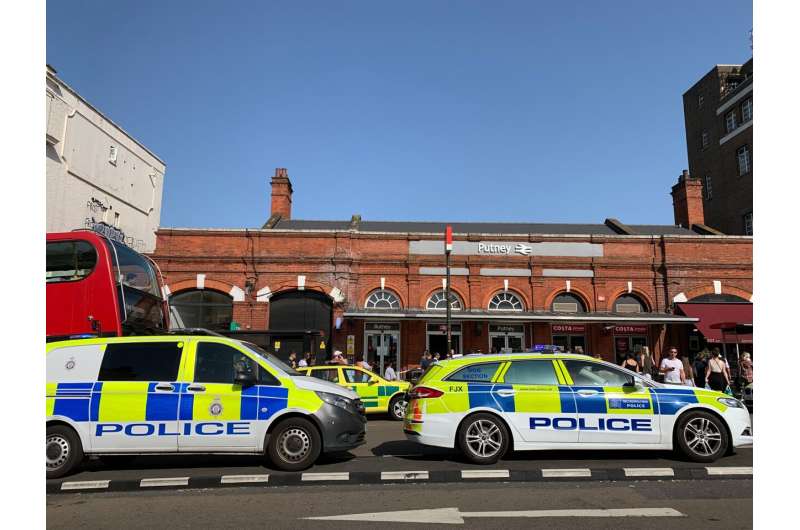This article has been reviewed according to Science X's editorial process and policies. Editors have highlighted the following attributes while ensuring the content's credibility:
fact-checked
trusted source
proofread
Three in four rape and sexual assault survivors' mental health harmed during police investigation

Research led by Katrin Hohl, Professor of Criminology and Criminal Justice at City, University of London with Abigail-Kate Reid, Research Assistant, and Sarah Molisso and Merili Pullerits, Ph.D. candidates at City, shows the severe impact poor policing is having on the safety and mental health of rape and sexual assault survivors. The study, "Rape and sexual assault survivors' experience of the police in England and Wales," is available online.
The largest ever survey of its kind was completed by over 2,000 victims of sexual offenses in England and Wales between January and June 2023. The survey is part of Operation Soteria Bluestone, a National Police Chiefs' Council-led research and change program that aims to radically and sustainably improve procedural justice and outcome justice for rape and other sexual offenses.
Direct quotes from survivors include:
- "I am more afraid of the police than being raped again."
- "It saddens me that someone else went through it because the police dismissed mine so quickly."
- "My rapist is a serving (and armed) police officer; he was never arrested or suspended."
Key findings from the report include:
- Poor police responses to rape disclosures are life-changing. Three quarters (75%) of respondents said their mental health worsened as a direct result of what police did, or failed to do, in their case. The results also show the traumatic effects of poor policing on survivors' safety, including exposure to ongoing sexual and domestic abuse, suicide, physical health issues, and family life problems. Countless respondents said their rapist went on to sexually offend again against them and/or others because police did not take their report seriously.
- "I don't feel safe or taken seriously or supported" (survivor quote): As many as 42% of respondents did not always feel believed, while just 26% felt officers understood what it was like for them and 31% did not always feel safe in the presence of the officers. Only 37% of respondents said officers made them feel like they mattered or that they took their needs into account. This is particularly important because six out of ten respondents reported a mental or physical health condition, neurodiversity, or additional need.
- There are signs of progress and evidence of good policing. Survivors who reported in the past six months or had police contact in the last three months are significantly more likely to report positive experiences. A total of 60% of these respondents said police did a good job in their case, compared to only 36% whose last police contact was more than three months ago or who reported to police more than two years (38%). Some survivors said the officer saved their life, or helped them tremendously by taking their report seriously, going above and beyond in the investigation, and treating them with kindness and compassion.
- Recommendations for better policing. Findings show the concrete actions officers can take to improve survivor experience, including treating them with procedural fairness, referrals to independent victim support, protecting them from the suspect, and looking at all the evidence.
- Findings also include new evidence on reasons why most survivors do not report to police. This includes feeling ashamed or embarrassed, fear of not being believed, fear of the perpetrator, low rape convictions rates and little trust in criminal justice.
Professor Hohl, lead academic of the survey and former joint strategic academic lead of Operation Soteria Bluestone said, "It is thanks to the bravery and generosity of the more than 2,000 survivors completing the survey that these findings are now here to be read and acted upon.
"The findings are sobering. They evidence the tremendous harm poor policing has caused to many rape and sexual assault survivors.
"Survivors are not asking the impossible. The survey shows that good policing can be achieved, because it is already being done by many officers."
More information: Rape and sexual assault survivors' experience of the police in England and Wales. Survey Report I: January—June 2023. openaccess.city.ac.uk/id/eprint/31310
Provided by City University London





















